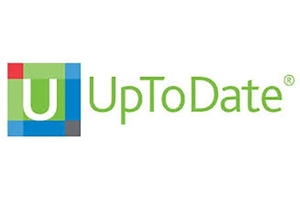SEE ALSO: Biology e-Journals
*On this page, the UNIMED Library collects resources in Biology and other related disciplines.
Biodiversity Heritage Library: Biodiversity Heritage Library Project is a cooperative endeavor by ten major natural history museum libraries, botanical libraries, and research institutions to digitize biodiversity literature.
AmphibiaWeb: provides information on amphibian declines, natural history, conservation, and taxonomy.
Encyclopedia of Life (EOL): Global access to knowledge about life on Earth.
Microbiology Guide
BioInteractive: free resources for Science Teachers and Students from the Howard Hughes Medical Institute (HHMI)
National Institute of Health (NIH) Human Microbiome Project
MicrobeWiki: a free wiki resource on microbes and microbiology.
Microbes.info: a microbiology information portal with lots of useful links.
Sumanas Inc: Animated Microbiology Tutorials
WizIQ: Microbiology tutorials
Protocol Online: a database of research protocols in a variety of life science fields.
Viral Zone: an aggregation of virus, virology and other related resources.
Virtual Cell Animation Collection
Microbiology Online: online resource supports the teaching and learning of microbiology in the classroom across the key stages.
American Society of Microbiology
American Society of Biochemistry and Molecular Biology
Canadian Society of Microbiologists
Nigerian Society for Microbiology
Plant Biology and Biotechnology Guide
ChromDB: The broad mission of ChromDB is display, annotate, and curate sequences of two broad functional classes of biologically important proteins: chromatin-associated proteins (CAPs) and RNA interference-associated proteins. Plant proteins are the major focus of the work support by The Plant Genome Research Program (PGRP) of the National Science Foundation.
Gramene Project: Gramene is a curated, open-source, integrated data resource for comparative functional genomics in crops and model plant species.
Maize Full-Length cDNA Project: The overall goal is to sequence 30,000 FLcDNA clones from two cDNA libraries of varied tissues and stress treatments .
Fungal Databases: This database provides access to several fungus related databases.
Plant Information Online: from the University of Minnesota can be used to “discover sources in 1063 North American nurseries for 107916 plants, find 378901 citations to 140596 plants in science and garden literature, link to selected websites for images and regional information about 14157 plants, and access information on 2463 North American seed and nursery firms.
International Institute for Species Exploration
Red List: the Red List provides the most up-to-date and authoritative information about the status of threatened and endangered plants and animals.
International Plant Genetic Resources Institute (IPGRI) (Bioversity International, formerly the International Plant Genetic Resources Institute)
National Center for Biotechnological Information (NCBI, National Library of Medicine): advances science and health by providing access to biomedical and genomic information.
European Bioinformatics Institute EMBL-EBI: provides freely available data and bioinformatics services to the scientific community.
GenBank: NIH genetic sequence database, an annotated collection of all publicly available DNA sequences.
Online Mendelian Inheritance in Man (OMIM): An NCBI (National Center for Biotechnology Information) database that catalogs all the known diseases with a genetic component, linking them to the relevant genes in the human genome, important literature and links to related government and non-profit organizations.
Biotechnology Society of Nigeria (BSN)
Nigerian Society of Plant Protection
Animal and Environmental Biology Guide
Action Bioscience: research information on a broad range of biological issues as they relate to the environment. From the American Institute of Biological Sciences.
The World’s Biomes: Information on the major biological communities (deserts, forests, etc.) and how they are changing. From the University of California.
GreenFILE: Comprised of scholarly and general interest titles, as well as government documents and reports, GreenFILE offers perspective on the positive and negative ways humans affect the ecology.
Encyclopedia of Earth: The Encyclopedia of Earth (EoE) is an electronic reference about the Earth, its natural environments, and their interaction with society.
Open Learn: The environment: The Open University provides free online educational resources in a range of subjects. This link will take you to those relating to the study of the environment.
Envirolink: The EnviroLink Network is a non-profit organization dedicated to providing comprehensive, up-to-date environmental information and news.

